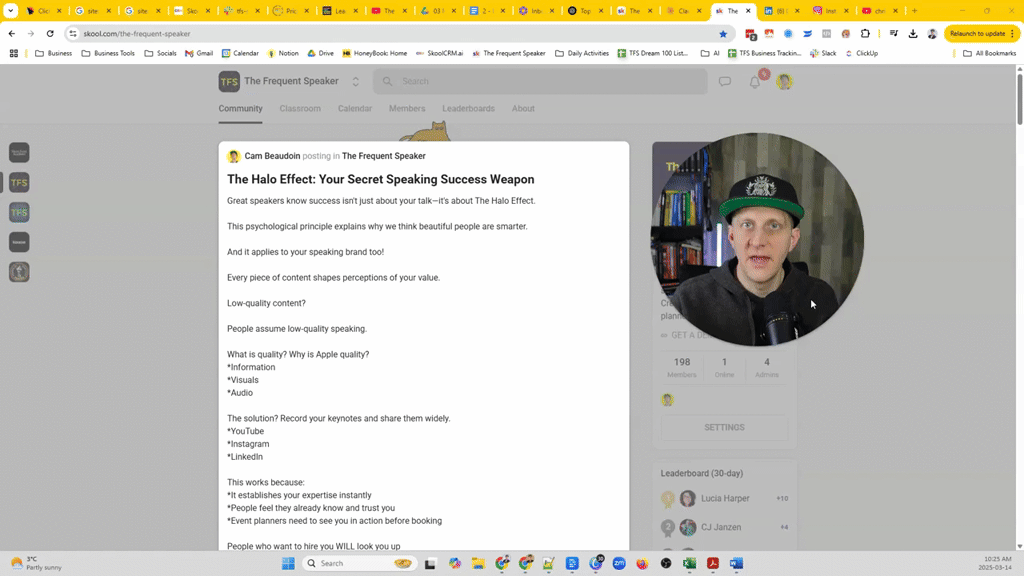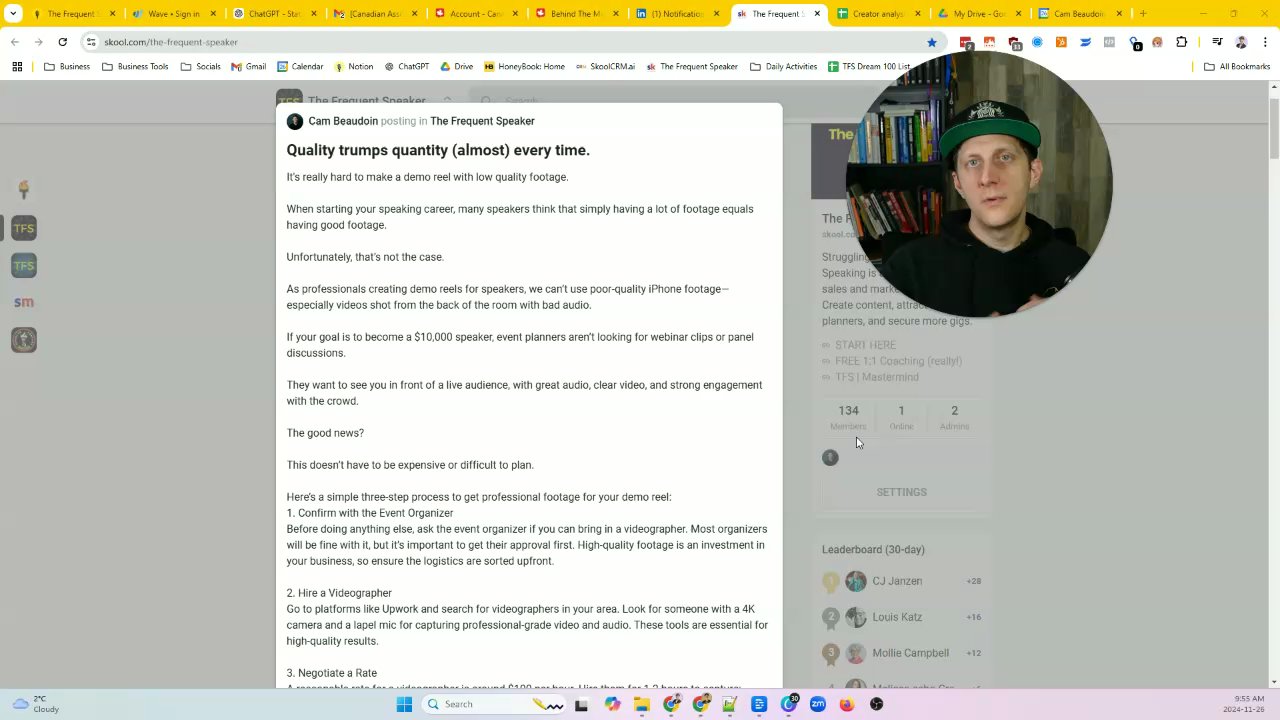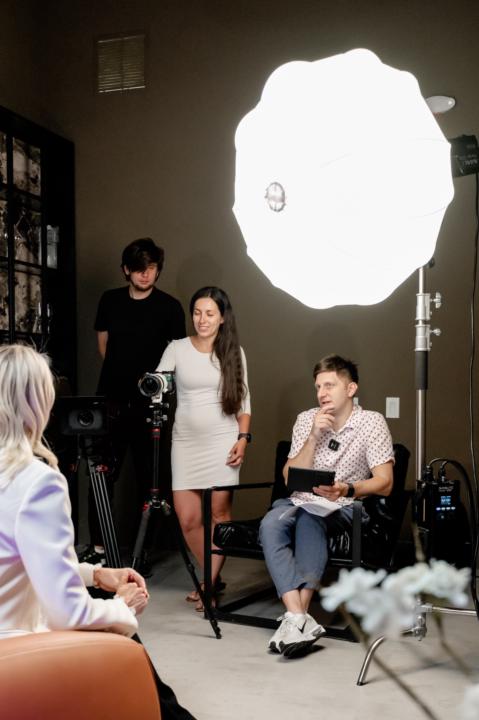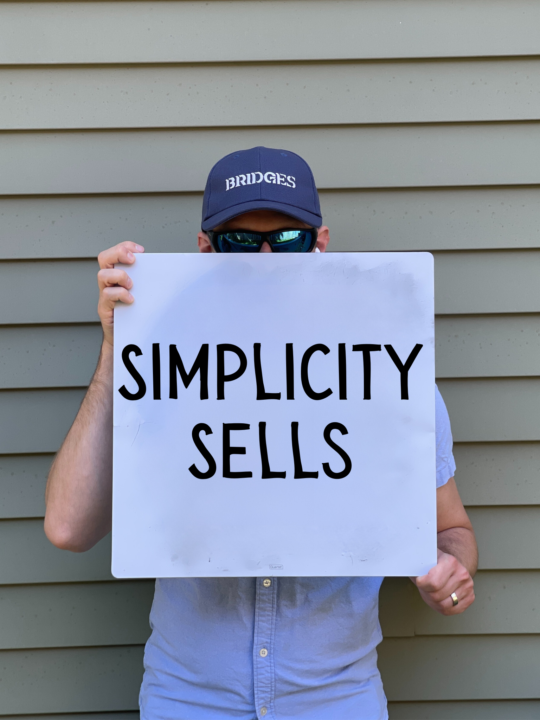
Write something
The Halo Effect: Your Secret Speaking Success Weapon
Great speakers know success isn't just about your talk—it's about The Halo Effect. This psychological principle explains why we think beautiful people are smarter. And it applies to your speaking brand too! Every piece of content shapes perceptions of your value. Low-quality content? People assume low-quality speaking. What is quality? Why is Apple quality? *Information *Visuals *Audio The solution? Record your high quality keynotes and share them widely. *YouTube *Instagram *LinkedIn This works because: *It establishes your expertise instantly *People feel they already know and trust you *Event planners need to see you in action before booking People who want to hire you WILL look you up Check out these speakers we’ve worked with: *Robyn Thompson - Instagram *Denis Boudreau - LinkedIn *Christine Miles - YouTube Being invisible means being unbookable.

Everything you wanted to know about speaker fees
1️⃣ What are the typical speaker fees in the US? Speaker fees in the US vary widely based on experience, industry, event format, and several other factors. Here's a general breakdown: - $2,500–$5,000: Brand new speakers with minimal experience - $5,000–$10,000: Newer speakers and those in the education industry - $10,000–$20,000: Experienced corporate speakers - $20,000–$50,000: Bestselling authors, professional athletes, and B-list celebrities - $50,000+: Celebrities, high-ranking politicians, sports superstars It's crucial to remember that this is just a guideline. Your fee will depend on your unique value proposition, perceived expertise, and the specific event details. 2️⃣ How do I determine my starting speaker fee? If you're just starting out, a reasonable starting point is around $2,500. Be willing to negotiate and adjust your fee based on the client's budget, event type, and the value you provide. Remember, building experience is key in the beginning. Consider accepting free or low-paying gigs to practice, network, and gather testimonials. As you gain experience and build your reputation, you can gradually increase your fees. 3️⃣ Does audience size affect my speaker fee? Generally, no. Your effort and preparation remain relatively consistent whether you're speaking to 50 or 500 people. However, audience size might matter if you're selling products, as a larger audience offers greater sales potential. Additionally, if your presentation involves materials with per-attendee costs (like workbooks), then audience size becomes a factor in calculating your expenses. 4️⃣ Should I ever speak for free? Speaking for free can be a strategic move under certain circumstances: - Multiple bookings: Offer discounts for multiple engagements with the same client. - Potential spin-off business: Speaking engagements can lead to future paid opportunities. - Minimal travel: Reduce your fee for local events that minimize travel expenses. - Valuable experience: Early in your career, free gigs can provide practice and build your reputation. - Building relationships: Speaking for free can foster relationships with potential clients for future paid work. - High-profile events: Certain unpaid events, like TEDx talks, can significantly boost your credibility.

Quality trumps quantity (almost) every time.
It's really hard to make a demo reel with low quality footage. When starting your speaking career, many speakers think that simply having a lot of footage equals having good footage. Unfortunately, that’s not the case. As professionals creating demo reels for speakers, we can’t use poor-quality iPhone footage—especially videos shot from the back of the room with bad audio. If your goal is to become a $10,000 speaker, event planners aren’t looking for webinar clips or panel discussions. They want to see you in front of a live audience, with great audio, clear video, and strong engagement with the crowd. The good news? This doesn’t have to be expensive or difficult to plan. Here’s a simple three-step process to get professional footage for your demo reel: 1. Confirm with the Event Organizer Before doing anything else, ask the event organizer if you can bring in a videographer. Most organizers will be fine with it, but it’s important to get their approval first. High-quality footage is an investment in your business, so ensure the logistics are sorted upfront. 2. Hire a Videographer Go to platforms like Upwork and search for videographers in your area. Look for someone with a 4K camera and a lapel mic for capturing professional-grade video and audio. These tools are essential for high-quality results. 3. Negotiate a Rate A reasonable rate for a videographer is around $100 per hour. Hire them for 1-2 hours to capture: - You preparing for the event (behind-the-scenes shots). - Your talk on stage (focus on audience interaction). - Post-talk interactions with attendees (to highlight your engagement). Why Quality Footage Matters Everything you produce is a signal. Low-quality content suggests to potential clients that your work is also low quality, even if it’s not. A demo reel isn’t like social media content—it’s your chance to put your best foot forward and impress decision-makers. Investing $200-$300 in professional footage shows that you care about your business and the value you bring.

A common speaker (toxic) mindset
When I started speaking, I focused on: 1. Adding thousands of names just to hit a big number. ↪️ "I'll just buy a lead list of 10,000 names!" 2. Casting the widest net possible, hoping something would stick. ↪️ "Everyone needs to hear my message!" 3. Sending generic emails to anyone who might hire a speaker. ↪️ "Dear {event planner} are you looking for a speaker for your next event?" But, I FELT like I was doing a lot of work (”oh I’m adding people to my list”) I was chasing quantity, not quality. I was chasing a bigger list, not better connections. I was chasing more outreach, not meaningful conversations. The reason? The speaking industry makes you think that is the goal. "You need to send 100 cold emails per week to be a successful speaker!" 👈 The old way Because if you think about it, it would be IMPOSSIBLE connect with everyone. (...and your brain agrees. The job is just too massive, so you don't do it) No matter how many speaker success stories we read... There are 10x failure ones underneath. Build your core client list. Those who love you and want to throw money at you. Flip the narrative → focus on growing deep relationships. (until the focus is on you) Do you agree? yes/no

My number 1 speaker tip: Simplicity Sells
(especially if you’re trying to get gigs) Two-thirds of event planners are planning larger budgets for meetings in 2025; if you want to get booked, then: - Remember they don’t know you - Remember they want a problem solved - Remember they want a transformation Why else would they bring you on stage? If you want to get booked, you need to: 1. Get clear on the one thing you solve better than anyone else. 2. Simplify your messaging so it’s impossible to misunderstand. 3. Make your demo reel audience-focused—not speaker-focused. 4. Highlight a specific transformation that event planners care about. 5. Keep consistent clarity across your website, reel, and outreach. Bonus: Your demo reel should sell, not just show. Don’t: Make a reel a highlight video of your accomplishments (nobody cares). Do: Frame it as a story about solving their problems. CLEAR difference. Your demo reel is not just a snapshot of your performance; it’s a preview of the results you deliver. Get them thinking: “This speaker gets it. This is exactly what our audience needs.” They’ll reward you by booking you.

1-17 of 17

skool.com/the-frequent-speaker
Struggling to get booked? Speaking is a business! Learn the sales and marketing game! Create content, attract event planners, and secure more gigs.
Powered by
